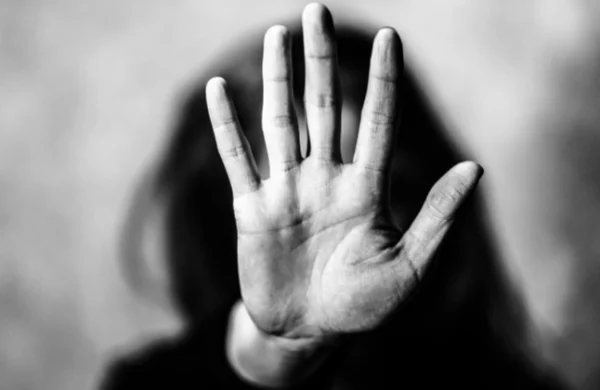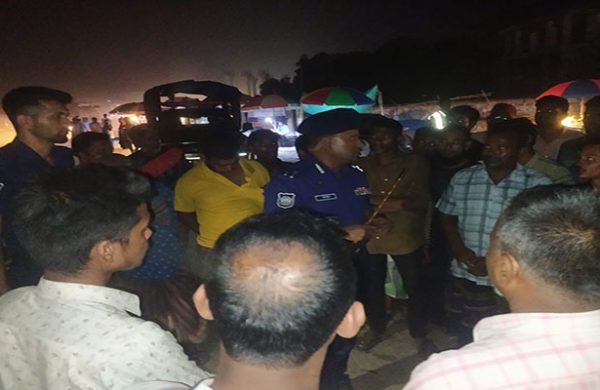Violence against women shows sharp increase
- Update Time : Thursday, July 17, 2025

TDS Desk:
Violence against women in Bangladesh continues to escalate, fueled by social stigma, impunity, and systemic failures in justice delivery. An analysis of police records from 2020 through to June 2025, supported by expert opinions, highlights a disturbing trend of rising abuse.
According to crime statistics from Police Headquarters, incidents of violence against women and children have surged significantly. In the last four months of 2024, 5,795 such cases were reported. In the first four months of 2025, this number rose to 7,028.
DETAILED MONTHLY DATA FROM 2023 TO JUNE 2025 SHOWS AN ALARMING SPIKE IN RECENT MONTHS:
In 2023, the number of cases recorded against such crimes were: January (1,265), February (1,295), March (1,652), April (1,448), May (1,867), June (1,833), July (1,794), August (1,851), September (1,699), October (1,621), November (1,426), and December (1,193).
In 2024, the numbers were: January (1,043), February (1,371), March (1,509), April (1,623), June (1,689), July (1,702), August (1,072), September (1,578), October (1,560), November (1,452), and December (1,205).
In 2025: January (1,440), February (1,430), March (2,054), April (2104), May (2087), and June (1933).
The data clearly shows that in the last four months (March to June), there has been a marked rise in such cases, with the average number reported of these crimes jumping from around 1500 per month to around 2000 per month.
DISTURBING TRENDS IN SEXUAL VIOLENCE
Data from the Human Rights Support Society (HRSS) indicates that from 2020 to 2024, at least 11,758 women and girls were victims of abuse and violence in Bangladesh, including 6,305 rape cases. Alarmingly, 3,471 of the rape victims were under 18, accounting for over 55% of cases.
Further, 1,089 women and girls were gang-raped, and 207 victims were murdered following sexual assault. Among those killed, 118 were children.
Police records released this week say 6,555 cases of rape were recorded in 2020, followed by 6,341 in 2021, 6,032 in 2022, 5,191 in 2023, and 4,394 in 2024. In the first six months of 2025, the number of rape cases recorded was 2,744, which can be annualised to 5,488. This may be lower than 2020-2022, but is again seen to be climbing up when compared to 2023 and 2024.
Barrister Sara Hossain, Supreme Court lawyer and Executive Director of Bangladesh Legal Aid and Services Trust (BLAST), stated, “Reports indicate that over 1,000 to 1,500 incidents of harassment appear in the media every month. Yet there is no comprehensive data on convictions or protection for survivors. To curb violence against women, we must ensure women’s rights at every level and reject societal tolerance of misogynistic acts.”
She also alluded to the fact that even the numbers reported are likely to be undercounts, since many incidents go unreported due to the stigma that attaches to victims.
“Many victims remain silent due to social stigma, lack of awareness, or fear of being blamed. In our justice system, victims are often subjected to character assassination instead of receiving support. Without addressing these issues, violence against women will persist,” said Barrister Hossain.
Dr. Tawhidul Haque, Associate Professor of Social Welfare at Dhaka University and a crime analyst, said, “Violence against women is not new but is increasing alarmingly. While previously rates fluctuated, they are now consistently rising, indicating a crisis.”
Delving into the reasons, he too touched upon the lack of proper redress and the failure to provide justice, as reasons behind such crimes escalating.
“Failures in rapid justice delivery, societal views that treat women as subordinate, and ineffective protection systems contribute to this trend. The absence of proper legal implementation and victim support mechanisms, such as shelter, social security, and empowerment programs, reflect a systemic failure,” Dr Haque said.
“Marginalized victims often receive little attention, while cases involving more prominent victims are prioritized. In addition, ongoing political and social instability further aggravates the situation. We must change our collective mindset and restructure society to ensure genuine safety for women,” he added.



















